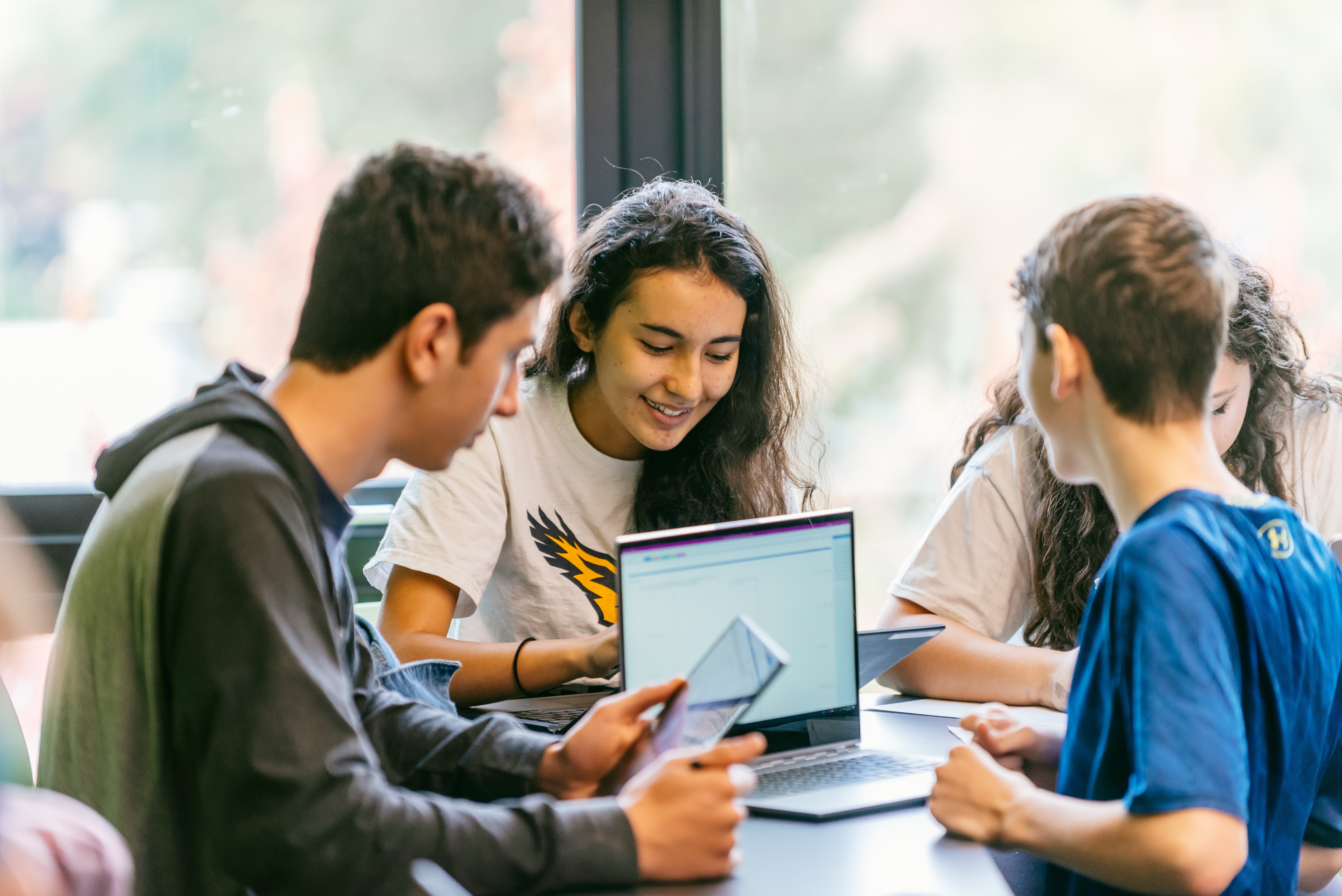
Othering and Belonging
By Bess McKinney, EICL Coordinator
When I first set up my office as Eastside Prep’s Equity, Inclusion and Compassionate Leadership (EICL) Coordinator last year, some students were surprised to see a couch in the space. I explained that it was there not because I wanted a place to nap. Rather, that the couch was one part in my effort to make sure that the EICL Office be a space where students could come be, belong, and, importantly, tell me if they felt like there were spaces or places at school where they did not feel like they did belong. A couch does not create that space on its own, but it is a start, and it had been the location for many conversations over the past two years about belonging and its cruel opposite, othering. Two weeks ago, for example, I spoke with a student about how they were greeted with a mocking anti-Asian slur and told not to spread the Coronavirus. Fortunately, this event did not happen at EPS. However, it was a time for the student and I to talk about how they do belong, in and outside of EPS, and a signal to me to begin communication and conversations in several different venues about COVID-19 and how depending on our community response, we could erode or build a sense of belonging for everyone at EPS.
Ultimately, my job as EICL Coordinator is largely about othering and belonging. John A. Powell, a Professor of Law at the University of California at Berkeley and the Director of Berkeley’s Othering and Belonging Institute defines othering as a “set of dynamics, processes, and structures that engender marginality and persistent inequality across any of the full range of human differences based on group identities.” He then writes of belonging:
[t]he most important good we distribute to each other in society is membership. . . Belongingness entails an unwavering commitment of not simply tolerating and respecting difference but to ensuring that all people are welcome and feel that they belong in the society. We call this idea the ‘circle of human concern.’ Widening the circle of human concern involves ‘humanizing the other,’ where negative representations and stereotypes are challenged and rejected. It is a process by which the most marginalized outgroups are brought into the center of our concern through higher order love—the Beloved Community that Dr. King envisioned.[1]The equity and inclusion work on our campus is both to increase belonging for all our community—students, faculty, staff, families—and to increase our ability and facility to talk about and learn how to stop the more difficult topic of othering.
This year, that work has happened in many venues. The faculty and staff are working with Alison Park, a nationally recognized facilitator on diversity, equity, and inclusion for six-hours over two days throughout this year’s professional development days. She is helping us in our continued learning and fostering of belonging in and outside our classrooms. The Faculty/Staff EICL Group (established in 2017) meets monthly and expands our own learning and the questions we are asking as a school. Six students and four faculty members attended the National Association of Independent School’s Student Diversity Leadership Conference and People of Color Conference in December and continue to meet and brainstorm what they’d like to bring back from that incredible learning experience. Student clubs dedicated to belonging continue to grow with our support, including the new Asia, Pacific Islander, Desi, American Club sponsored by Masato Sudo. On March 9th, we will celebrate Dr. King’s legacy in EPS’s MLK Day 2020: Shaping our Future. Developed by a group of faculty and students who have been meeting since last spring, March 9th will be filled with conversations about belonging and othering in our all-school gathering and in workshops led by expert facilitators and teachers in the fields of antiracism, compassion, and belonging who will be joining us on the EPS campus for the day. The work to create belonging and to learn how to talk about and reduce othering continues, as it must, in these forums, and in conversations that I have every day with teachers, staff, students, and families, for as the great James Baldwin said, “Not everything that is faced can be changed, but nothing can be changed until it is faced.” Let’s face growing a community of belonging together.
_________________
[1] If you’d like to read Powell’s article in full, I highly recommend it. “The Problem of Othering: Towards Inclusiveness and Belonging,” Othering and Belonging: Expanding the Circle of Human Concern. http://www.otheringandbelonging.org/the-problem-of-othering/
